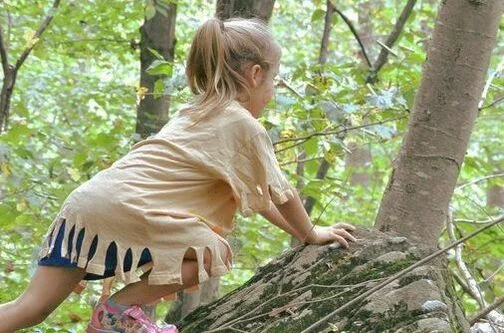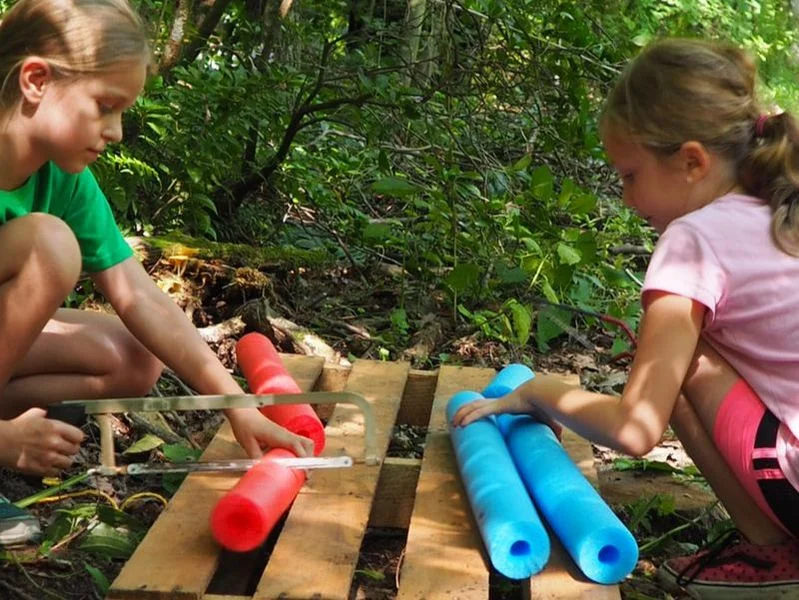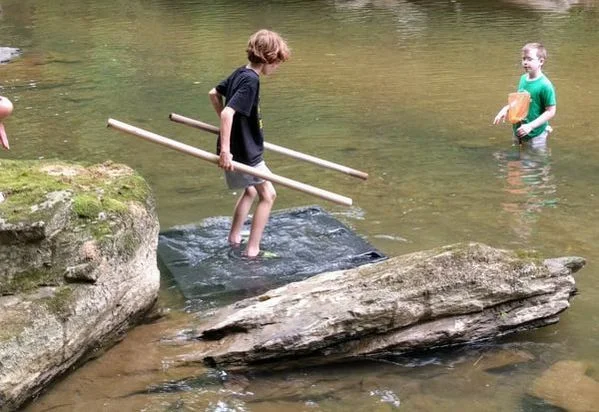INCREASING TIME OUTSIDE INSTEAD OF INCREASING STEM ACTIVITIES
Recently I had a librarian tell me it didn't matter what program they were running - if they just put the acronym, STEM, on it, parents would jump at the chance to sign up. I found that sad.
For those of you not familiar with STEM, it stands for Science, Technology, Engineering and Math. It is an initiative being pushed in and around schools to bolster the number of students who go into science and technology related fields. While the United States has historically been a leader in these fields, only 16% of high school graduates are interested in STEM careers.
Don't get me wrong - I LOVE science and math - but I think we are taking the wrong approach. We need to sign our kids up for less adult-directed class time and give them more child-directed opportunities for hands-on, sensory rich problem-solving right in their own backyard.
They are more capable then we give them credit. Children are scientists by nature.
In 2015, Barack Obama said,
“Science is more than a school subject, or the periodic table, or the properties of waves. It is an approach to the world, a critical way to understand and explore and engage with the world, and then have the capacity to change that world...”
He has the right idea. We want to develop kids who can tackle a given situation with critical thinking, who can deal with the crises of the present with innovative solutions and who can push through complex issues without giving up.
The answer, however, is not to increase science class time and enroll kids in more extracurriculars. Part of the solution is to go back to the basics and allow children to grow and develop in such a way that creativity, emotional intelligence and problem solving skills organically develop through play and exploration.
Remember when kids used to play outside for hours on end, only to be called in when it was time for dinner? The hardest decision was whether the stick they found would be a sword , a walking stick or a bridge. Maybe you are too young to remember that ( I'm not!).
Sadly, in addition to sitting for longer periods of time in school, pressured by academic demands, today's 8-18 year old spends an average of 7 hours 38 minutes in front of a screen every day!
Did You Know?
Kids who go to play-based preschools versus academic based preschools perform better academically in the long run. They also feel less stress, exhibit less behavioral problems and have more positive attitudes about learning.
Construction play is related to the development of visual spatial skills and these skills are related to math skills and problem solving.
When the way children spend their time is completely dictated by parents and teachers, children lack a sense of self-control which denies them the ability to grow stronger and more confident. This often leads to anxiety and depression.
Children who spend more time outside have improved emotional intelligence which not only benefits mental health but improves job skills. Workers who show higher emotional intelligence are able to work better in groups, be more flexible and adjust to new technologies.
Spending time outdoors restores our brain's cognitive function by giving chances for "effortless attention" or non-demanding responses.
Risky play outdoors builds self-confidence, resilience and risk management skills in children.
Children given open-ended free play are able to guide their own interests and pursuits.
Connecting a child to nature can play a huge role in developing them to be kind, caring and compassionate.
What Can We Do?
Next time you go to sign up your child for another STEM activity, first ask yourself these things:
Does your child want to do it or is it just something you are making them do because you think they need it?
How much time does your child spend outside on a daily basis?
How much of your child's time is directed by an adult?
Does the activity allow time for interacting with other peers?
Is the activity open ended or does it require a particular outcome?
Perhaps some time in the backyard or a day at the park would be a better option.
There is no question that we want our kids to face the future with a heart of compassion and the capacity to change the world for good. One of the best ways they can do that is by having the freedom to play, on a regular basis, in natural settings.








